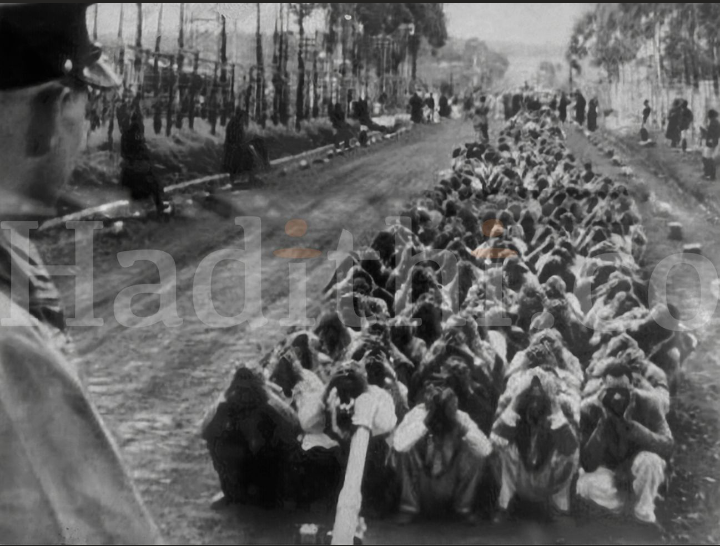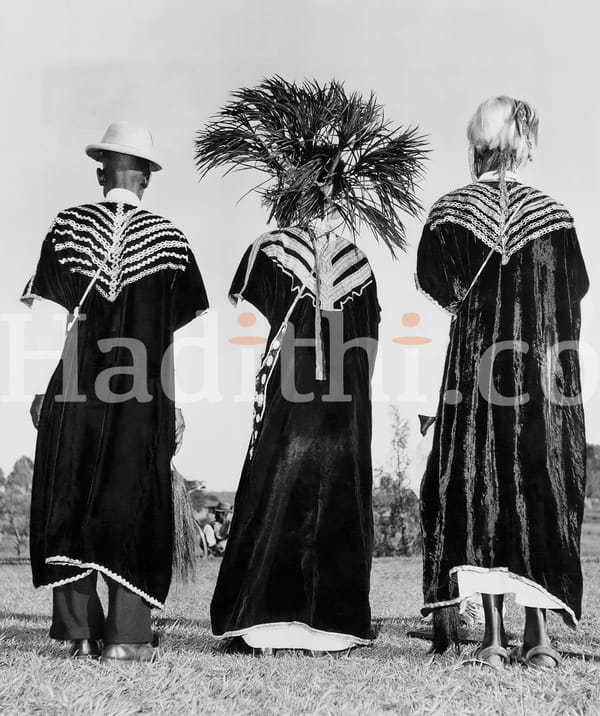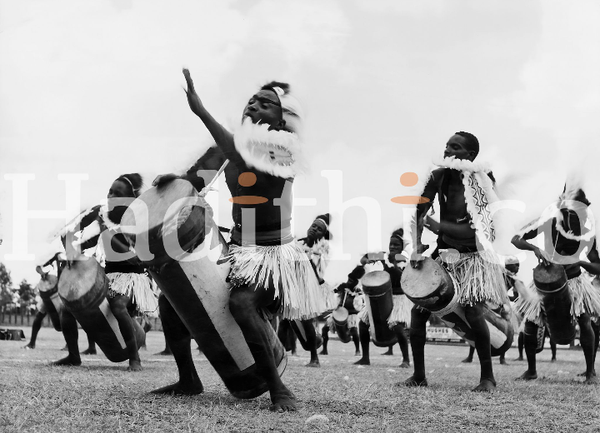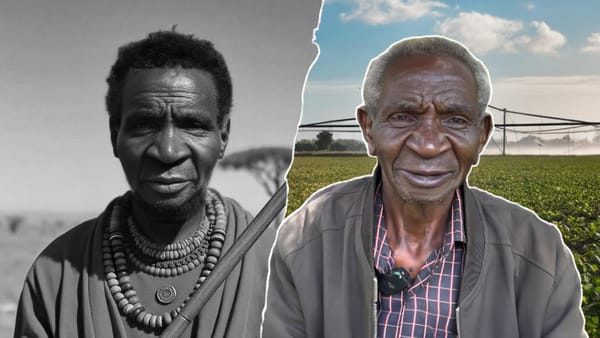The Rich Tapestry of Ghanaian Culture
Ghana, a vibrant and diverse West African country, boasts a rich cultural heritage that has evolved over centuries. Rooted in its many ethnic groups, Ghana’s culture is a fascinating blend of traditional beliefs, social norms....

Ghana, a vibrant and diverse West African country, boasts a rich cultural heritage that has evolved over centuries. Rooted in its many ethnic groups, Ghana’s culture is a fascinating blend of traditional beliefs, social norms, and modern influences. From the powerful legacies of ancient kingdoms to the rhythmic sounds of contemporary Afrobeat, Ghana’s cultural landscape is as dynamic as it is deep.
Ethnic Diversity and Language
Ghana’s ethnic diversity is one of its most striking cultural features. With over 100 ethnic groups, each with its own unique traditions, languages, and social systems, the country offers a rich tapestry of cultural experiences. The largest ethnic groups in Ghana are the Akan, Mole-Dagbani, Ewe, and Ga-Adangbe, but many smaller groups contribute to the vibrant mosaic of Ghanaian life.
The Akan People: Language, Proverbs, and Symbols
The Akan are the largest ethnic group in Ghana, and they include subgroups such as the Ashanti, Fante, and Akuapem. The Akan people are known for their powerful kingdoms, particularly the Ashanti Empire, which was a dominant force in West Africa during the 18th and 19th centuries. But beyond their political history, the Akan culture is filled with vibrant traditions.
One fun example is the importance of proverbs in Akan culture. Proverbs are often used in daily conversations to convey wisdom or add humor to a situation. A common Akan proverb is “Woforo dua pa a, na yepia wo” which means, “When you climb a good tree, you are given a push.” This means that when you pursue a worthy cause, others will support you. Proverbs like this are a common way of teaching life lessons or giving advice in a way that’s both respectful and witty.
The Akan language, particularly Twi, is filled with fun wordplay and idioms. For instance, the word "Twi" itself can lead to a joke, as "Twi" also means "to climb," and it's not uncommon to hear people say, "Let’s climb the Twi language today!"
Another fascinating aspect of Akan culture is the use of Adinkra symbols. These symbols, each representing a concept or aphorism, are used in everything from clothing design to architecture. One popular Adinkra symbol is the “Gye Nyame” symbol, which means “Except for God,” representing the supremacy of God. You’ll often find this symbol on clothes, bags, and even carved into wooden stools, emphasizing its deep cultural significance.
The Mole-Dagbani: Rich Histories and Folktales
The Mole-Dagbani people, predominantly found in northern Ghana, include groups such as the Dagomba, Mamprusi, and Nanumba. Known for their centralized kingdoms and chieftaincy systems, the Mole-Dagbani are also rich in oral traditions and storytelling.
The Lunsi, or drummers, play a crucial role in maintaining the history of the people. The Lunsi don’t just make music; they are historians, reciting the genealogies of chiefs and recounting important historical events through their drumming. It’s said that in the past when a visitor came to a Mole-Dagbani village, the Lunsi would welcome them by drumming out a summary of the local history — a very unique form of musical storytelling!
The Dagbani language itself also offers a wealth of expressions that capture their communal and spiritual life. For instance, the phrase “A n-sa” translates to "the hand of God" and is often used to express gratitude for divine intervention in daily life.
The Ewe People: Music, Dance, and the Power of Community
The Ewe people, located primarily in the Volta Region of Ghana, are known for their vibrant music and dance traditions. In Ewe communities, dance is not just for entertainment; it’s a deeply spiritual and communal activity. The famous Agbadza dance, for example, is performed during celebrations, funerals, and festivals. With its high-energy movements and complex drum rhythms, Agbadza is a crowd favorite and invites everyone to join in.
Another unique feature of Ewe culture is their system of clans, which dictates social structures and relationships. The Ewe believe that their ancestors live on through their clans, and they strongly emphasize communal life and mutual support. This is reflected in their language through phrases like “Nunya adidoe, asi metune o,” meaning “Knowledge is like a baobab tree; no one person can embrace it,” highlighting the importance of shared knowledge and wisdom.
Fun fact: Ewe drumming and dancing can be so infectious that during performances, you may find spectators jumping up spontaneously to join in, regardless of their skill level — it’s all about the spirit of participation and joy.
The Ga-Adangbe People: Festivals and Language Play
The Ga-Adangbe people, residing mostly in Accra and along the southeastern coast of Ghana, are known for their vibrant Homowo festival, which means “hooting at hunger.” This festival marks the Ga people’s victory over famine and celebrates their agricultural success. During Homowo, Ga families prepare a special dish called kpokpoi, made from cornmeal and palm nut soup, and sprinkle it around their homes and on the streets to give thanks to their ancestors.
The Ga language, like many in Ghana, is rich in idiomatic expressions. One fun Ga phrase is “Afi o afi,” which literally means “Year upon year,” and is used to express good wishes for longevity and prosperity. During the Homowo festival, you’ll often hear Ga speakers using this phrase as they toast to good health and fortune in the coming year.
Another interesting cultural feature is the role of the Ga language in naming children. Ga people often give names based on the day of the week a child is born, a practice seen across Ghana, but the Ga names are distinct. For example, a boy born on Monday might be called Kwadzo, while a girl born on Friday might be named Afia. These names are not just identifiers but reflect deep cultural beliefs about the significance of time and ancestry.
Smaller Ethnic Groups and Hidden Gems
Beyond the larger ethnic groups, Ghana is home to many smaller communities with unique cultures and languages. For instance, the Guan people, one of the earliest settlers in Ghana, have intriguing traditions tied to nature. They believe in the spiritual significance of rivers and trees, and some communities even have sacred groves where rituals are performed to honor the gods of the land.
The Nzema people, who live along the western coast, are famous for their Ahobaa festival, which celebrates community harmony and the harvest season. During the festival, the Nzema speak their language with humor, often using playful insults or teasing as a form of affection. This lighthearted banter strengthens bonds between family and friends.
Traditional Beliefs and Religion
Ghanaian culture is deeply interwoven with spirituality. Traditional religion, with great appeal toward ancestor worship and the veneration of deities related to nature, plays a huge role in the lives of so many Ghanaians. The spiritual world, in which ancestors guide and protect the living, is very much alive, especially in the rural areas.
Modern Ghana is dominated by the religions of Christianity and Islam, reflective of its historical involvement with European missionaries and Islamic traders. Large swathes of the country remain either Christian or Muslim, but often traditional beliefs mix with the most modern of religious practice. A good example is the practice of libation pouring at many formal events, where appeals are made to spirits and ancestors for guidance and blessings.
Festivals and Cultural Celebrations
Festivals in Ghana are celebrated with the air of grand and colorful events highlighting historical events, harvests, and the cultural identity of various ethnic groups. One of the most popular is the Homowo festival celebrated by the Ga people of Accra. Homowo, meaning "hooting at hunger," commemorates a period of famine that was overcome through the hard work of the ancestors of the Gas. The festival is marked by traditional drumming, dancing, and the consumption of special foods like kpekple.
Another significant festival is Akwasidae of the Ashanti, which gives much-needed respect to the ancestors and ensures the strength of the Asantehene. During this festival, the Ashanti royal court wears full traditional regalia, with the golden stool displayed to represent the unity of the Ashanti people.
Festivals are a form of identity that helps connect the present generation to the past, thereby serving as a linkage to their forefathers while creating community spirit and continuity.
Globalization and the Evolution of Ghanaian Culture
Globalization has had a profound impact on Ghanaian culture, bringing both opportunities and challenges. As the world becomes more interconnected, Ghana has embraced many aspects of global culture while simultaneously striving to preserve its rich heritage. This dynamic blend of tradition and modernity can be seen in various aspects of Ghanaian life, from fashion to music, technology, and social structures.
The Legacy of Slavery and Global Connections
Ghana played a very significant role in the transatlantic slave trade, which had its mark indelibly on its culture and its relationship with the world. Between the 16th and 19th centuries, millions of Africans were taken from the coasts of Ghana through notorious forts and castles such as Elmina and Cape Coast Castle. These Africans were forcibly transported across the Atlantic to the Americas, having great impacts on the cultures of the Caribbean, the United States, and Latin America.
But even in horror, Ghana has reclaimed these historical sites as a powerful symbol of remembrance and reconciliation of the transatlantic slave trade. Today, places like the Cape Coast Castle have been declared UNESCO World Heritage sites, frequented by visitors around the world, especially those with African roots. Annual celebrations of Emancipation Day, an initiative titled the Year of Return that was launched in 2019, as part of broader contemporary Pan-Africanist politics, has returned diasporic Africans to Ghana and enabled descendants of enslaved Africans to reconnect with their homeland.
In this way, the legacy of slavery has become a bridge between Ghana and the African diaspora, deepening cultural exchange and helping many Ghanaians embrace a shared sense of global African identity.
The Rise of Technology and Social Media
Technology has turned out to be one of the main driving forces of cultural changes in Ghana in the present era. The use of the internet and the increased accessibility of social media sites like X, Instagram, and TikTok have exposed them to the rest of the world in regard to fashion trends, music, and lifestyle. Most of the youth in Ghana, especially in urban areas, are more influenced by Western culture in their new ways of dress, speech, and interaction with the outside world.
More accurately, though, rather than simply being consumed by foreign influences, Ghanaians have taken such platforms for the assertion of their identity. One sees an upsurge of "Afrocentrism," with proud young Ghanaians flashing their traditional attires, natural hairstyles, and overall cultural heritage on globally open platforms. This is further manifested in the emergence of trends such as #WearGhana, where people are encouraged to wear locally-made clothes, specifically kente and batik fabrics, to marry traditional aesthetics with modern fashion sensibilities.
Social Media has also allowed Ghanaians to take a new definition of their music and arts to the world stage. Several Ghanaian artists feature prominently in Afrobeats, the genre that has taken over international airwaves; infusing global influences, yet unapologetically Ghanaian. Artists like Sarkodie, Stonebwoy, and Amaarae have leveraged social media and streaming platforms for global recognition by fusing traditional rhythms with hip-hop, reggae, and electronic music.
Fashion and the Rebirth of African Identity
Ghanaian fashion has evolved over the years due to globalization. Traditionally, Ghanaians wore well-stitched fabrics like kente and smock, each representing something symbolic. In the recent past, global styles have influenced local fashion, and what can now be observed within the country is the fusion of Western with African style. For example, Ankara fabric which was used for ceremonial occasions now gets made into modern chic outfits one sees at international fashion weeks.
Globalization has also played a role in the growing interest in African identity. Ghanaians are now proud of wearing their cultures not only in Ghana but in the diaspora because it comes with the larger Pan-African movement. The patterns of resistance against African print fabrics, traditional hairstyles, such as cornrows and locs, along with accessories like beads, have been recreated as symbols of pride, coupled with beauty.
Ghanaian designers are now gaining global recognition, and it has become normal for international fashion houses to incorporate African designs into their collections. Indeed, Christie Brown and Ohema Ohene have been very instrumental in paving the way for Afrocentric fashion and turning the attention of the world to the vibrant cultural heritage of Ghana while still keeping a modern and global appeal.
Music and the Fusion of Sounds
Ghanaian music is another area where the effects of globalization are visible. Traditional forms of music like highlife, borborbor, and hiplife have long been central to Ghanaian culture. Highlife music, with its blend of Western instruments and African rhythms, was one of the first African genres to gain international popularity in the early 20th century. Highlife evolved into hiplife in the 1990s, combining traditional highlife sounds with hip-hop and rap, resulting in a genre that spoke to Ghana’s youth.
In recent years, Ghanaian artists have found success by embracing the global Afrobeats movement, blending traditional Ghanaian rhythms with contemporary genres like dancehall, reggae, and hip-hop. Musicians such as Shatta Wale and King Promise have gained international recognition by collaborating with artists across the world, while still preserving elements of their Ghanaian identity in their music.
Social media platforms and music streaming services have been instrumental in this cultural evolution, allowing Ghanaian artists to reach a global audience. Through music, Ghana has created a cultural export that continues to influence global pop culture while showcasing the country’s rich heritage.
The Impact of Globalization on Traditional Practices
While globalization has opened up many opportunities for Ghanaians to connect with the world, it has also posed challenges to the preservation of traditional practices. Many young Ghanaians, especially in urban areas, are increasingly adopting Western values and lifestyles, sometimes at the expense of traditional customs and languages. For example, in some families, English has replaced indigenous languages as the primary language spoken at home, raising concerns about the preservation of local dialects.
Nonetheless, there has been a strong push to preserve Ghana’s cultural heritage in the face of globalization. Many Ghanaians actively promote traditional festivals, music, and art through media, tourism, and education. Organizations like the Ghana Museums and Monuments Board and cultural festivals like Chale Wote Street Art Festival in Accra celebrate indigenous arts while encouraging global artistic collaborations, ensuring that Ghana’s cultural evolution remains balanced between tradition and modernity.
Globalization of Culinary Culture
Ghana’s food culture has also evolved with globalization. While traditional dishes like jollof rice, waakye, and fufu remain staples of Ghanaian cuisine, new culinary influences from Europe, Asia, and America have made their mark, particularly in cosmopolitan areas. Ghanaians are known for embracing new flavors and creating fusion dishes that blend local ingredients with global cuisine.
The rise of Ghanaian food bloggers and influencers on social media has made traditional Ghanaian dishes more visible on the international stage. For instance, the Jollof Wars, a lighthearted competition between Ghana and Nigeria over whose jollof rice is better, has become a global conversation on social media, showcasing Ghana’s food culture in a fun and engaging way. In turn, more international travelers are being drawn to experience Ghanaian culinary culture firsthand.
Conclusion
Ghanaian culture is an ever-evolving, living, and breathing reflection of its past, present, and future. It is a lively amalgamation of primitively traditional practices, legacies from colonial days, and even modern influences at variance with one another. Still, the abiding respect for heritage, retention of language, and celebration of festivals and art serve to keep the cultural identity alive in Ghana, alive and resilient amidst the strongest forces of globalization. As Ghana moves into the future, their culture will continue evolving, from generation to generation, acting as an identity beacon on the global platform.
References
Books:
1. The Sacred Forest: The Fetish Priestess in the Akan Tradition by Nana Osei Bonsu (1997)
2. Chieftaincy in Ghana: Culture, Governance, and Development edited by Irene K. Odotei & Albert K. Awedoba (2006)
3. The Fall of the Asante Empire: The Hundred-Year War For Africa's Gold Coast by Robert B. Edgerton (1995)
4. African Religions & Philosophy by John S. Mbiti (1990)
Articles:
5. “Cultural Heritage in Ghana” by George Hagan, Africa Insight (1983)
6. “The Role of Traditional Festivals and Their Relevance to the Socio-Economic Development of Ghana” by Seth Appiah-Opoku, GeoJournal (2000)
7. “A Global Overview of Ghanaian Popular Music” by John Collins, Journal of African Cultural Studies (2004)
Websites & Reports:
8. Ghana Museums and Monuments Board - [GMMB Website] (https://www.ghanamuseums.org/)
9. UNESCO World Heritage: Ghana - [UNESCO Ghana World Heritage] (https://whc.unesco.org/en/statesparties/gh)
10. Year of Return Ghana Official Website - [Year of Return Website] (https://yearofreturn.com/)




